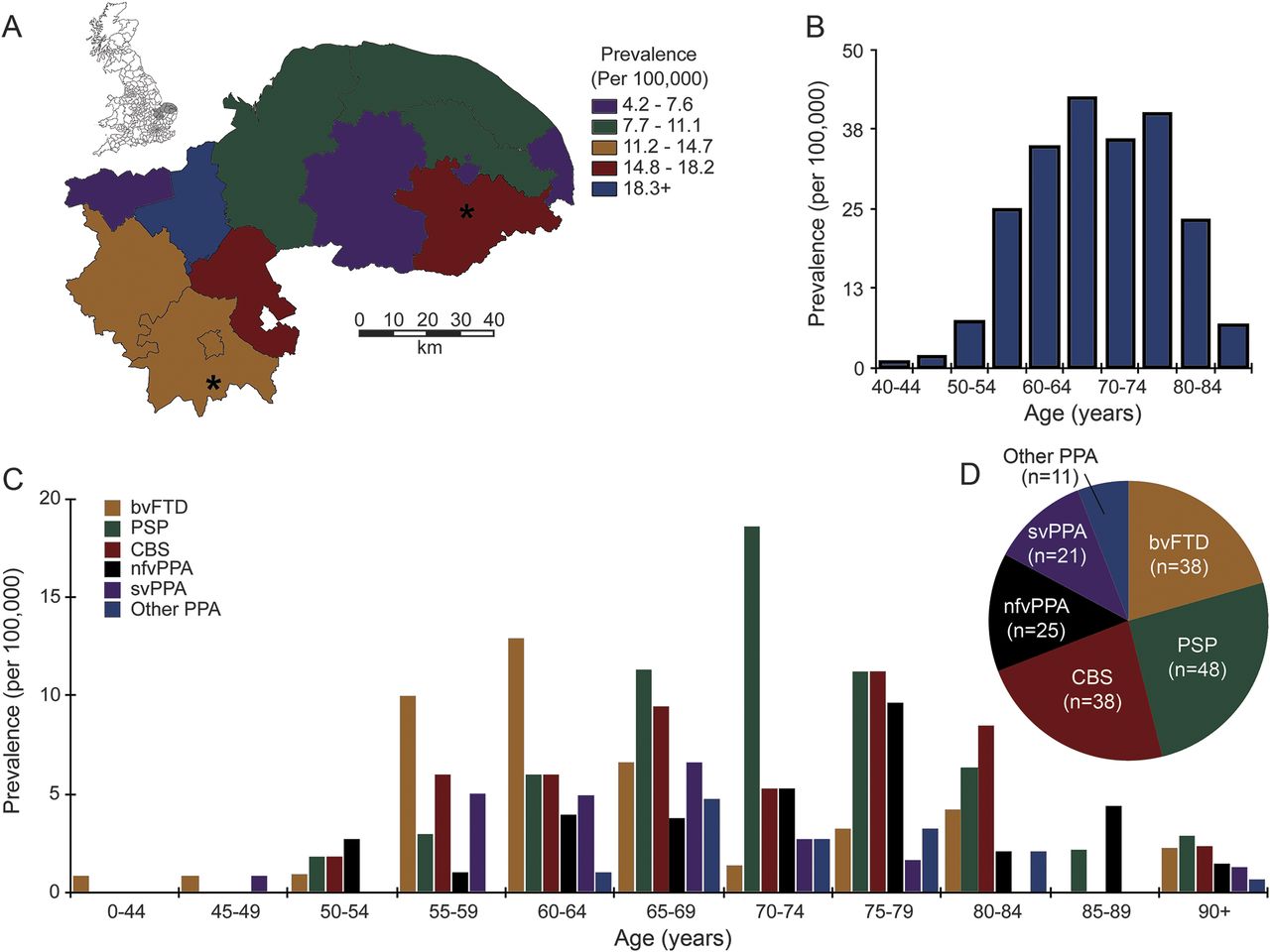Many of our most foundational human abilities rely, in some way, on neurons located in the frontal and temporal lobes of the brain. It comes as no surprise, then, that frontotemporal damage – through a stroke, for instance, or a neurodegenerative disease – can result in a wide range of symptoms, from difficulties with speech to apathy and impulsivity. But clinicians are still far from understanding the prevalence of such “frontotemporal lobar degeneration” syndromes, let alone their typical characteristics and how they change over time. The goal of the PiPPIN study (Picks disease and progressive Supranuclear Palsy Prevalence and Incidence Study) is to change this. Since 2013, PiPPIN researchers have been studying the brains and cognitive abilities of individuals affected by frontotemporal lobar degeneration. Their exciting findings are enabling healthcare professionals and loved ones alike to better care for these patients.

 MRC Cognition and Brain Sciences Unit
MRC Cognition and Brain Sciences Unit


